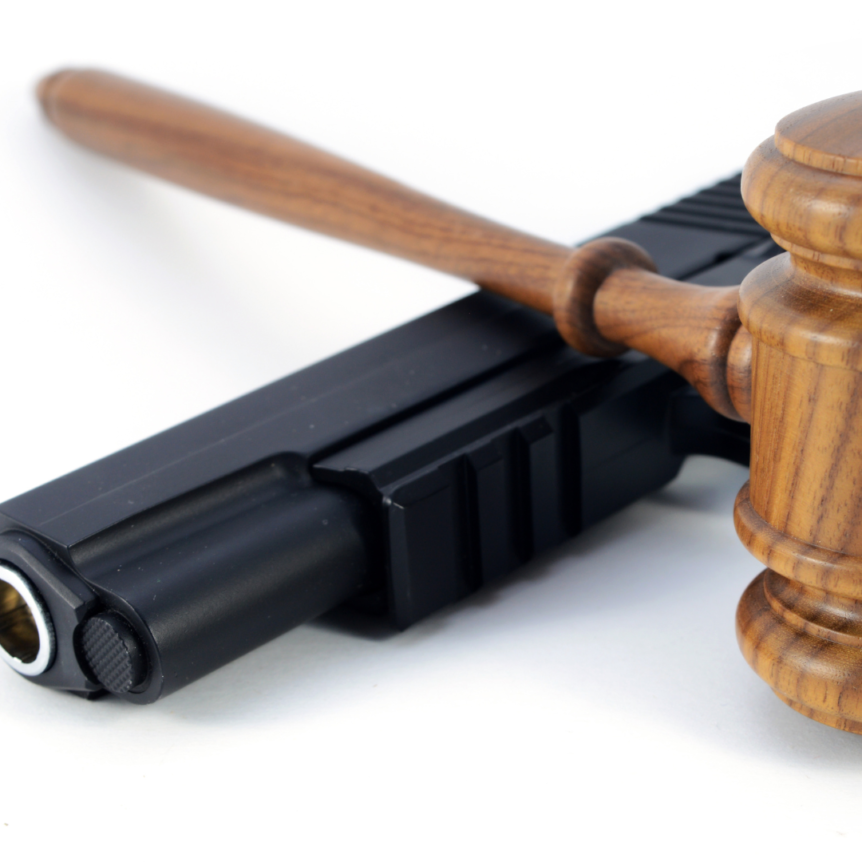Is the Trustee of Your Florida Firearms Trust a Prohibited Person?
Florida gun trusts offer a simple and private way to transfer your Title II firearms to new owners. However, you must choose carefully when appointing someone to act as trustee to your revocable living trust. Your trustee must not only be a responsible party; they must be legally able to own and possess firearms under state and federal laws.
If you choose the wrong individual to oversee your Florida gun trust, you and your heirs could face significant penalties, including jail time. Before you include a gun trust in your Florida estate plan, you need to know who does—and doesn’t—meet the requirements for gun ownership.
Prohibited Persons Who Cannot Own or Control Firearms Under Federal Law
Under the Gun Control Act of 1968, certain “prohibited persons” cannot legally receive, ship, possess, or transport firearms. Federal firearms laws consider a prohibited person to be any individual who:
- Is a minor
- Is a fugitive from justice
- Is not legally a resident of the United States or has renounced U.S. citizenship
- Uses or is addicted to any unlawful or controlled substance (including marijuana)
- Lacks the mental capacity to manage their affairs
- Was declared a danger to themselves or others by a lawful authority due to a mental condition or illness
- Was involuntarily hospitalized to receive mental health or substance abuse treatment
- Was dishonorably discharged from the U.S. Armed Forces
- Is under indictment for a federal crime punishable by more than one year in prison
- Has been convicted of a federal crime punishable by more than one year in prison
- Is under indictment for a non-misdemeanor state crime punishable by more than one year in prison
- Has been convicted of a non-misdemeanor state crime punishable by more than one year in prison
- Has been convicted of, or is under indictment for, a misdemeanor state crime punishable by more than two years in prison
- Has been convicted of domestic violence
- Is under an active restraining order to prevent them from stalking, threatening, or harassing an intimate partner or child
Does Florida Law Prohibit Persons from Owning or Possessing Firearms?
In addition to federal regulations, Florida has added further restrictions on gun ownership at the state level. A person cannot possess a gun in Florida if they:
- Have been convicted of a felony
- Are under 24 years old and were convicted of a felony-level event while underage
- Has an active restraining order barring them from committing acts of domestic violence
- Is considered by Florida law to be a “violent career criminal.”
- Was determined to be “mentally defective” or was committed to a mental institution per Fla. Stat. § 790.065(2);4
- Is under an active risk protection order prohibiting them from possessing or attempting to acquire any firearms
A quick word about “red flag” laws that are making their way through legislatures around the country. Under Florida’s “red flag” laws, someone who is under an active risk protection order prohibiting them from possessing or attempting to acquire any firearms is also a prohibited person. However, these orders are meant to be temporary. Once the risk protection order is no longer in force, your chosen trustee can once again oversee your gun trust. To avoid potential uncertainty in the future, it’s best to always name alternate or successor trustees to your trust.
Prohibited Persons Are Also Barred from Firearm-Related Materials
Unfortunately, running afoul of state and federal firearms laws is relatively easy. For example, you could face criminal charges if you allow a prohibited person to load your Title II weapon—or even allow them access to that weapon.
Prohibited persons cannot own any potentially deadly materials, including:
- Ammunition. If your trustee or heirs become prohibited persons, they lose the right to control ammunition as well as firearms. This includes bullets, cartridges, primers, propellants, or empty shell casings.
- Destructive devices. Prohibited persons cannot own weapons with an explosive component, including grenades, projectiles, Molotov cocktails, or other devices.
- Accessories. Frames, receivers, silencers, and other accessories are prohibited regardless of their ability to fire projectiles without a firearm.
Check With an Estate Planning Attorney Before You Name a Successor Trustee to Your Florida Gun Trust
At Yolofsky Law, we know how important it is for your family to maintain control of your firearms after your passing. When creating your gun trust, we carefully examine your choice of successor trustee to ensure the administration remains legal and confidential.
We provide contingency options if your planned successor is prohibited, your chosen trustee becomes ineligible for gun ownership once in the role, or a trustee declines to serve. By preparing you for these potential scenarios, we can help ensure that your heirs never lose control over their safety and security.
Don’t leave this vital part of your estate plan up to chance! Schedule a call with Yolofsky Law today, or send us an emailto learn your options from an experienced gun owner and estate planning attorney.

